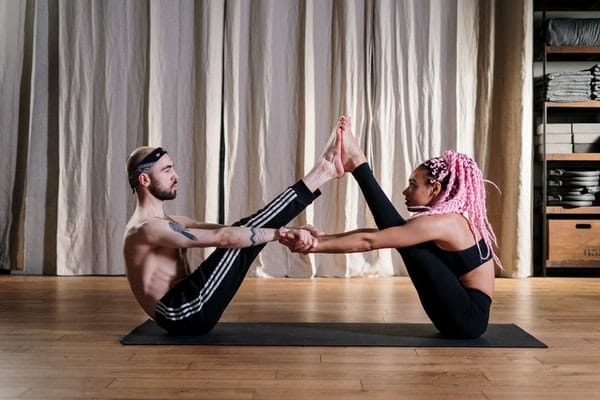
New yoga students may not be aware that there are many types/styles of modern yoga and considerable differences among teachers.
How to Choose a Yoga Class
Admittedly, choosing a yoga class or teacher based on style is a luxury for many people. The cost of specialized courses, often offered in studio settings, can add up quickly.
When cost is an issue, factors such as work/school schedule, family obligations, and gym membership may drive the early choices of a yoga student. Although this is reality, a student using only these factors may attend a class that does not suit him or her and leave the experience thinking that yoga is not a “good fit.”
It is unfortunate because yoga might be just what this student needs to address chronic issues such as back pain or stress – issues that research shows yoga can effectively manage.
There are many ways to practice yoga; through persistence and an honest evaluation of the physical condition, personal preferences, and desired outcome, a “right class” is to be found.
“Physical Condition” Questions for Yoga Beginners
Should I consult my physician before trying a class? Pregnancy is one example of a good reason to consult a physician before attending a yoga class. Yoga often involves deep twisting, inversions, and standing, wide-leg postures, which may not be appropriate for specific stages of pregnancy.
Do I have physical issues that might need special consideration and a well-trained teacher? Injuries, high blood pressure, balance issues, and pregnancy are just a few to consider. Not all yoga teachers will know how to address all of these issues, so it’s essential to be informed.
“Personal Preference” Questions for a New Yoga Student
Do I want a fast-moving class, as in an Ashtanga, Vinyasa, or Power Yoga class? Or would I prefer to take some time in each posture, as in a Yin Yoga, Viniyoga or Iyengar Yoga class? Different teachers will pace a course differently, depending upon their preferences and training.
What kind of teaching style or teacher do I want? Do I want someone who teaches like a personal trainer—a pusher? Or do I want a gentler approach? Teachers are people, too. Some personalities will not suit all students.
How much guidance do I want? Are alignment principles vital to me, as in Iyengar Yoga, or would I prefer to have a teacher who simply leads through demonstration? Some teachers will tell students exactly where to put their arms; some won’t.
“Desired Outcome” Questions for a Yoga Beginner
Do I want to relax? And if so, what kind of teacher/atmosphere will best facilitate this? A gym? A community center? A church? All of these places are becoming typical venues for yoga.
Do I want to sweat? Many students imagine that yoga is always a slow, relaxing experience. It is a big misconception. Some yoga classes are designed to provide an intense, detoxifying sweat. For examples of this, see Bikram Yoga, Hot Yoga, Power Yoga, and Ashtanga Yoga.
How To Get Answers to These Questions
In a fitness setting, the management or other gym members often have a decent idea about teacher differences such as experience level, training, style and personality. An enthusiastic yoga teacher might also be willing to talk before or after a class.
On the other hand, studios are usually part of a very competitive market and will be prepared to answer questions and give descriptions of their classes and teachers.
Finally, YogaJournal.Com is a reputable site with unmatched content and video tutorials featuring leading yoga teachers from around the country. However, going to a class – knowing that there are other options out there if the course isn’t “right” – is the best way to begin choosing a style.